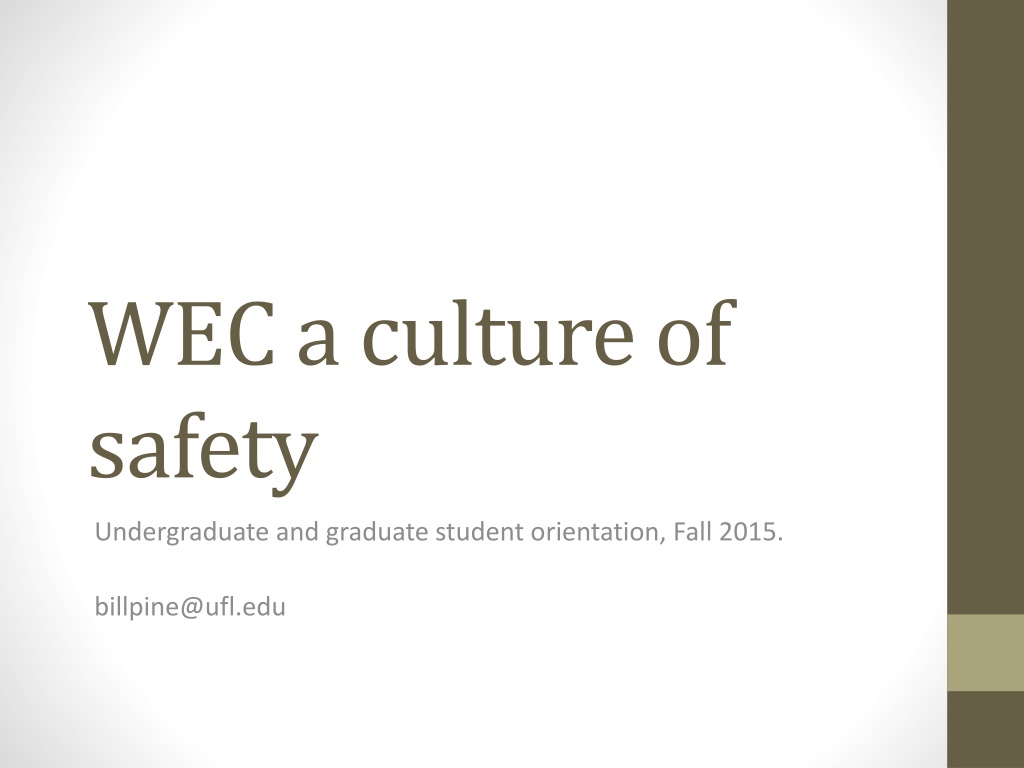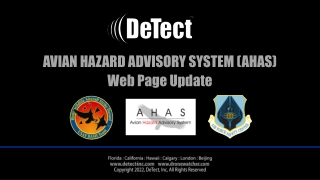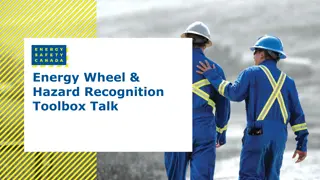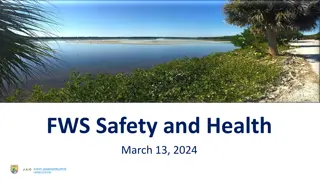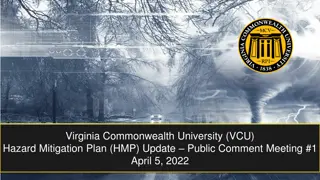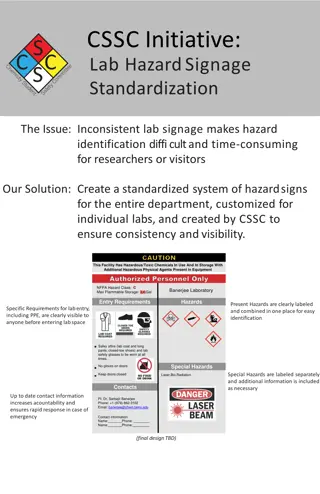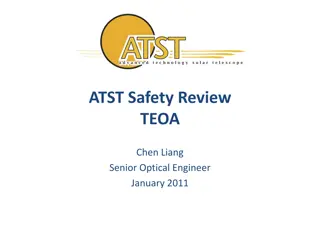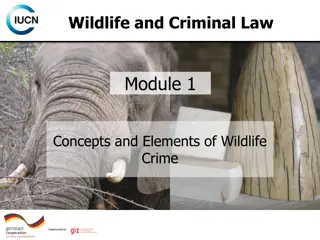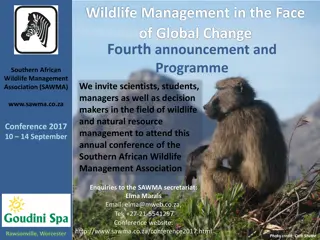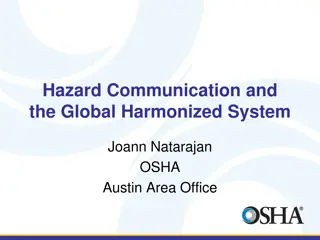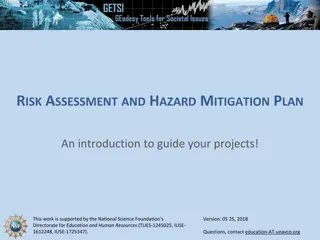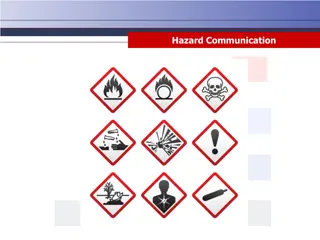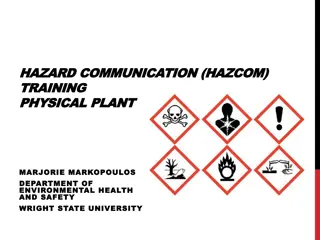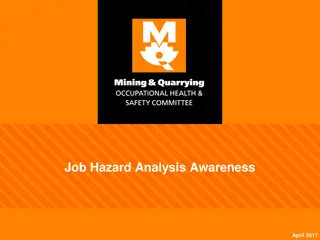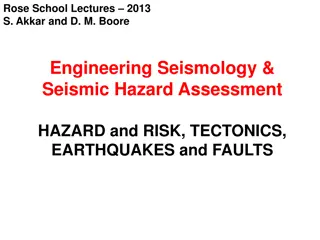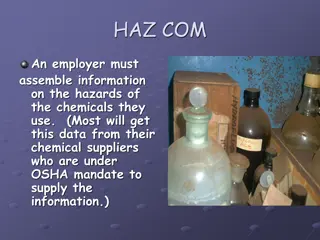Wildlife Safety and Hazard Awareness in the Field
Explore the importance of safety in wildlife professions, highlighting the risks, common accidents, and preventive measures. Understand the dangers associated with field activities such as aerial surveys, driving, and watercraft operation. Learn from past incidents to prioritize safety as a professional skill. Stay informed to avoid accidents caused by a chain of events and negligence.
Download Presentation

Please find below an Image/Link to download the presentation.
The content on the website is provided AS IS for your information and personal use only. It may not be sold, licensed, or shared on other websites without obtaining consent from the author. Download presentation by click this link. If you encounter any issues during the download, it is possible that the publisher has removed the file from their server.
E N D
Presentation Transcript
WEC a culture of safety Undergraduate and graduate student orientation, Fall 2015. billpine@ufl.edu
Wildlife is a hazardous occupation How many friends, acquaintances, professional colleagues do you know injured or died during field work? (my count is 7!- review staff and students present) Not as high as commercial fishermen, miners, cops, truckers, steelworkers, heavy construction But higher than lawyers, accountants, English teachers etc.
Safety is a professional skill and obligation of the wildlife professional along with other skills and knowledge like biology, wildlife management techniques, statistics, field techniques, GIS skills, writing. Our goal is to have all of you treat safety as a normal, routine necessity of the work, not a special add-on or an unusual event.
Most dangerous field activities Aircraft -aerial surveys, low level flight, helicopters- 5 dead in FL last year! Motor vehicles- driving to and from the field is the most dangerous part! Boats and other watercraft- it takes 2 minutes and 2 inches of water to drown
Most common accidents (review of 8,000 Earthwatchrecords from Perran Ross) Cuts, scrapes and falls (footwear and inattention) NEVER WEAR FLIP FLOPS FOR ANY REASON IN THE FIELD Sprains and pulled muscles (lifting, overexertion) Infected insect bites (protective clothing, DEET) Sunburn (protective clothing, sunscreen) Dehydration (non carbonated, non alcoholic fluids) Huge issues in Florida, minimize caffeine and avoid energy drinks
How do accidents usually happen? Very rarely a single unanticipated event Usually, a chain or cascade of events Running a bit late in the morning Drive a little too fast to get to field site Forget something important Head back to the truck too late, try and drive back to field station even later than too late Recognize the chain of mistakes and break it
Ooops! I thought you set the handbrake?
What must you do to be safe? Take personal responsibility for yourself Your clothing, footwear, protective equipment, preparation, Advise of pre-existing conditions Fitness, obesity, medical conditions, fatigue Inform yourself Numerous sources of hazard specific information Prepare before you go to the field Support each other in safety Information, Preparation, Equipment- it s a culture
What must you do to be safe? Communication is key Tell people where you are going, who is with you, how you are getting there, and when you will be back Don t count on your cell phone They get wet Coverage can be incredibly spotty in Florida even in places within 50 miles of huge cities Be prepared to make do if needed even overnight
Be safe out there! EVEN ON CAMPUS!!!!! Make smart choices about where and when you are going places Best way out of a bad situation is not to get in one Download and use TAP SHIELD App for Free! Use SNAP and Safe Walk 392-SNAP SW Rec, Library West, Marston, Broward, Reitz, Hub Walk with friends Be aware of your surroundings Use Later Gator Bill Pine Quantitative Ecology Fall 2014
New technologies can help with field communication
Message to one or more people who can help you
Sparse/no cell coverage here but we know where you are and can help!
Not perfect, but might be part of your plan About $125 for SPOT and $60 a year for service
Air Safety WEC has never lost a person, but this is serious stuff! If you are going to fly in small planes or helicopters in your graduate work for any reason (surveys, getting to field sites, etc), You and your graduate professor must follow new WEC rules about aircraft contracting You must take a short safety course If you attempt to establish a purchase order with a flight company without following WEC safety policies, your purchase order will be turned down. For more info about flight safety, check out the WEC website, or talk to Dr. Peter Frederick.
Wec.ufl.edu - Safety one-stop-shop for your safety needs WEC Aircraft safety protocols Field Safety Guidelines Boat and airboat operation requirements and tests UF 15-Passenger Van safety training This certification is required before you can operate a UF owned 15- passenger van The UF College of Medicine CPR and Safety Training Center The University of California, Berkley field safety document. UF Dive Safety Program UF Contact Cheryl Thacker Florida Fish and Wildlife Commission Boater Safety Course Florida Fish and Wildlife Commission Hunter Safety Course More coming at wec.ufl.edu Safety Safety- it s a culture
